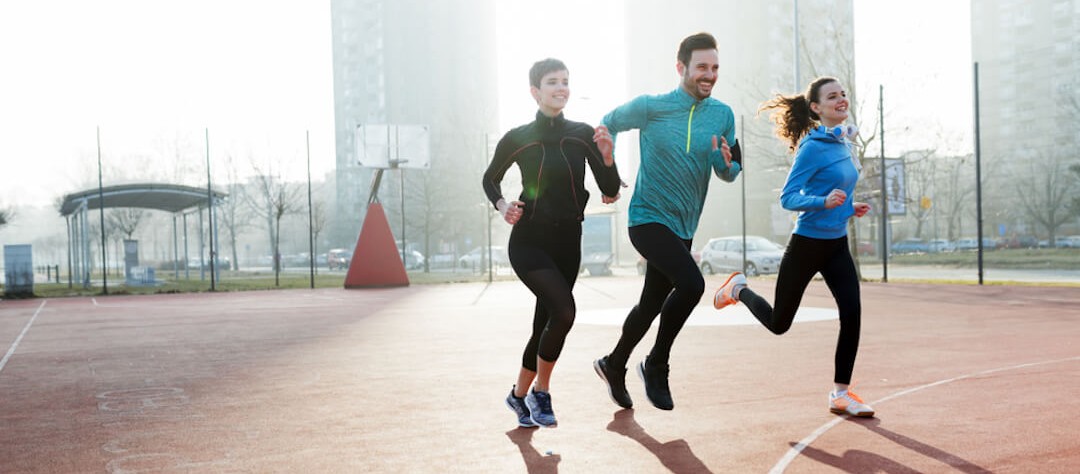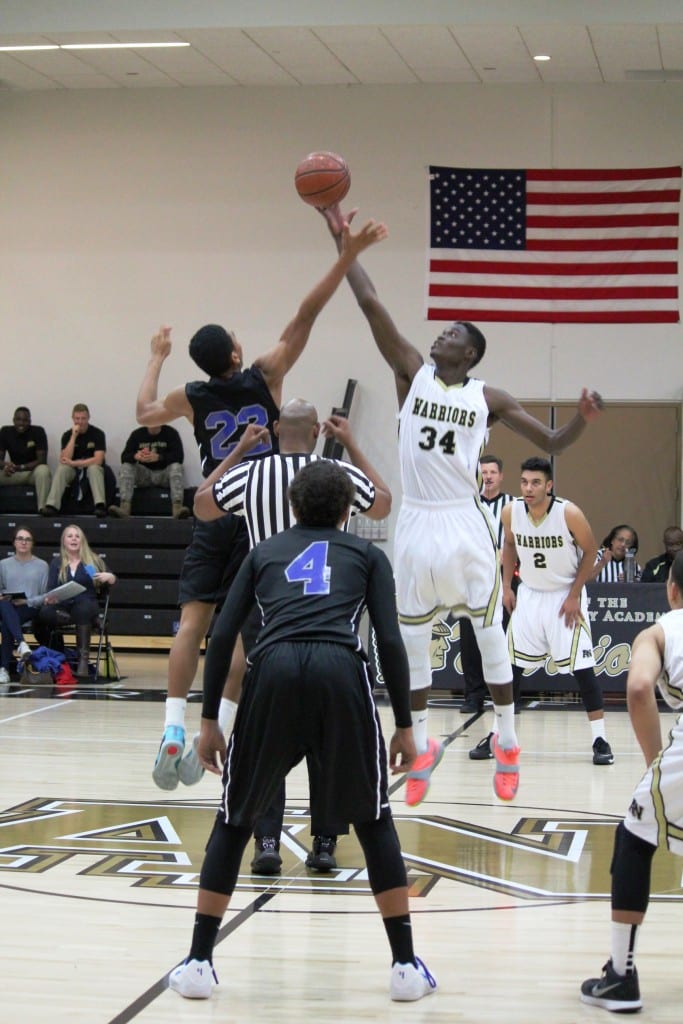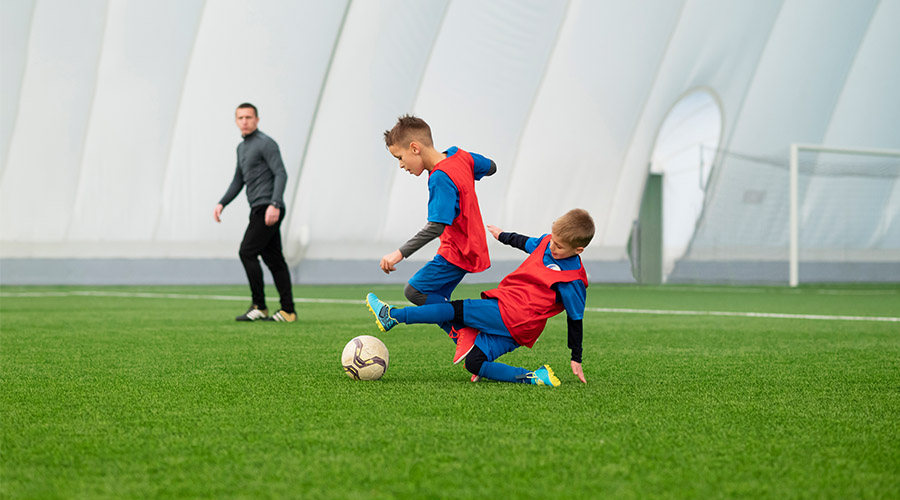Sports Impact on Personal Growth | Unlocking Life Skills
Discover how sports impact personal growth. Explore the link between sports and life skills development. Uncover the transformative power .

Sports, whether they are team-based or individual, have long been a fundamental part of human culture and society. Beyond the obvious physical benefits, sports play a significant role in shaping an individual's personal growth and life skills. This relationship between sports and personal development is multifaceted and deep-rooted. In this exploration, we will delve into the profound effects of sports on personal growth and life skills, touching upon various aspects of physical, mental, and emotional development.
Physical Fitness and Health:
One of the most evident effects of sports on personal growth is the enhancement of physical fitness and overall health. Regular participation in sports activities helps individuals develop endurance, strength, flexibility, and coordination. Whether it's running, swimming, basketball, or tennis, engaging in sports provides an opportunity for individuals to maintain a healthy weight and reduce the risk of chronic diseases like obesity, diabetes, and heart conditions.
Moreover, sports encourage the adoption of a healthy lifestyle. Athletes often pay close attention to their diets, ensuring they receive the necessary nutrients to support their performance and recovery. This dietary discipline extends to their daily lives, promoting better eating habits and nutritional awareness.
Discipline and Time Management:
Sports require dedication and discipline. Athletes must adhere to a strict training regimen, which often includes early morning workouts, regular practice sessions, and consistent performance evaluations. This level of commitment instills discipline and time management skills that are transferrable to other aspects of life. Athletes learn to prioritize their commitments, balance their schedules, and set and achieve goals ? skills that are invaluable in personal and professional growth.
Teamwork and Collaboration:
Team sports, such as soccer, basketball, and volleyball, emphasize the importance of teamwork and collaboration. Athletes learn to work with others towards a common goal, to communicate effectively, and to trust and rely on their teammates. These skills translate seamlessly into everyday life, helping individuals excel in group projects at school or work, and fostering harmonious relationships in personal and professional settings.
Resilience and Perseverance:
Sports often present challenges and setbacks. Athletes encounter injuries, defeats, and periods of low performance. These experiences teach resilience and perseverance ? the ability to bounce back from adversity and keep pushing towards one's goals. Learning to cope with failure and setbacks in sports equips individuals with the mental toughness needed to face life's challenges with a positive mindset.
Self-Confidence and Self-Esteem:
Success in sports, whether through personal improvement or team victories, boosts an individual's self-confidence and self-esteem. The knowledge that you can overcome obstacles and achieve your goals on the field can translate into the belief that you can overcome obstacles in other areas of life as well. This newfound confidence can be a powerful driving force for personal growth and success.
Leadership and Decision-Making:
Captains and leaders are often chosen within sports teams. These positions require individuals to make decisions, inspire their teammates, and lead by example. Aspiring leaders in the sports arena develop leadership skills that can be applied in various life situations, whether it's taking charge of a project at work, leading a community initiative, or simply guiding others through personal challenges.
Stress Management and Mental Well-Being:
Engaging in sports provides an outlet for stress and a means to maintain mental well-being. Physical activity triggers the release of endorphins, the body's natural mood elevators, which help reduce stress and anxiety. Sports also provide a mental break from the demands of daily life, allowing individuals to recharge and gain perspective on their problems.
Furthermore, sports teach mindfulness and focus. Athletes must concentrate on the game or activity at hand, blocking out distractions and negative thoughts. This mindfulness training can be beneficial in improving an individual's ability to stay focused in their studies or work, enhancing productivity and performance.
Goal Setting and Achievement:
In sports, setting and achieving goals is a fundamental part of the journey. Athletes set both short-term and long-term goals, whether it's improving a specific skill, winning a championship, or setting a personal record. This practice of goal setting and achievement is directly transferable to personal and professional life. It teaches individuals to dream big, break down their goals into actionable steps, and work persistently towards them.
Conflict Resolution and Sportsmanship:
Sports aren't always about winning; they also teach valuable lessons in defeat. Athletes learn the importance of sportsmanship ? treating opponents, coaches, and officials with respect and fairness. This extends to conflict resolution, where athletes must navigate disagreements and disputes within their teams or with opposing teams. Learning to handle conflicts constructively is a skill that can lead to healthier relationships and smoother interactions in all aspects of life.
Time for Reflection and Goal Adjustment:
While the intensity of sports can be demanding, it also provides athletes with moments of reflection and self-assessment. During training and competitions, athletes evaluate their performance, identify areas for improvement, and adjust their goals accordingly. This self-awareness and adaptability are crucial for personal growth. Individuals who engage in sports are more likely to assess their progress in life, make necessary adjustments, and strive for continuous improvement.
Community and Social Connections:
Sports are often a communal activity, fostering a sense of belonging and social connections. Team sports, in particular, create a bond among teammates that extends beyond the field or court. This sense of community provides emotional support and a network of friends, which can be a source of comfort and encouragement during life's challenges.
Respect for Diversity and Inclusion:
In the world of sports, individuals from various backgrounds, cultures, and perspectives come together to compete and collaborate. This exposure to diversity promotes tolerance, understanding, and respect for different viewpoints and experiences. Athletes learn to value the contributions of each team member, regardless of their background, fostering a more inclusive outlook that extends to society at large.
Healthy Competition and Ambition:
Sports introduce individuals to the concept of healthy competition. Competing against others pushes individuals to strive for excellence, set higher standards, and continually improve. It also teaches them to handle competition with grace and respect, even in defeat. This balance of ambition and sportsmanship can help individuals excel in their careers and personal pursuits while maintaining positive relationships with peers.
A Lifelong Pursuit:
One of the most remarkable aspects of the effects of sports on personal growth is that they can be enjoyed and cultivated throughout a lifetime. Unlike many other activities that have age restrictions or limitations, sports can be adapted to suit an individual's age and physical condition. Whether it's shifting from competitive sports to recreational play, coaching, or simply staying active for fitness, the lessons learned through sports remain relevant and applicable as people grow older.
?the effects of sports on personal growth and life skills are profound and far-reaching. Engaging in sports not only contributes to physical fitness but also cultivates essential attributes like discipline, teamwork, resilience, and self-confidence. These skills are invaluable assets that enhance an individual's personal and professional life, enabling them to overcome challenges, set and achieve goals, and lead fulfilling lives.
Moreover, sports provide opportunities for stress relief, mental well-being, and a sense of community, contributing to a holistic sense of fulfillment. Whether one is a professional athlete, an enthusiastic amateur, or someone who simply enjoys recreational sports, the lessons learned on the field or court have the power to positively shape one's life journey.
As individuals continue to delve into the world of sports, they not only enhance their physical prowess but also embark on a transformative journey of personal growth, equipping themselves with the skills and attributes needed to thrive in a rapidly evolving world. So, whether you're shooting hoops, diving into a pool, or running a marathon, remember that every sports moment is an opportunity for growth, both on and off the playing field
What's Your Reaction?
















